Jaw Shaping in Tunisia
Search and Compare the Best Clinics and Doctors at the Lowest Prices for Jaw Shaping in Tunisia

Find the best clinics for Jaw Shaping in Tunisia
No pricing info available
Clinic Apollon, located in Boulevard Mohamed Bouazizi, Tunis, Tunisia offers patients Jaw Shaping procedures among its total of 90 available procedures, across 1 different specialties. Currently, there's no pricing information for Jaw Shaping procedures at Clinic Apollon, as all prices are available on request only. All procedures and treatments are undertaken by just a small team of specialists, with 2 in total at the Clinic, and they are not accredited by any recognized accreditations institutes
- Home
- Tunisia
Compare Before & After Photos of _procedure_photos.phpJaw Shaping
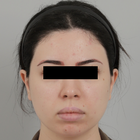
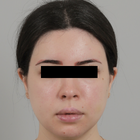
Front view
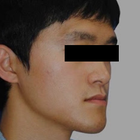

Front view
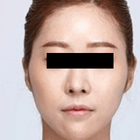
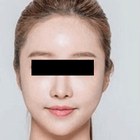
Front view
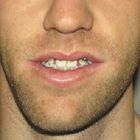

Front view
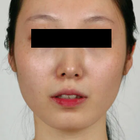
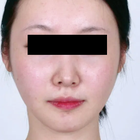
Front view
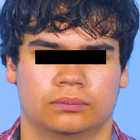
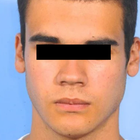
Front view
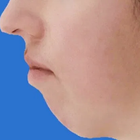
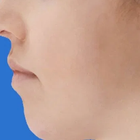
Full-side view
WHY US?
At Medijump, we're making medical easy. You can search, compare, discuss, and book your medical all in one place. We open the door to the best medical providers worldwide, saving you time and energy along the way, and it's all for FREE, no hidden fees, and no price markups guaranteed. So what are you waiting for?

Free

Best Price

Widest Selection

Risk-Free
What you need to know about Jaw Shaping in Tunisia
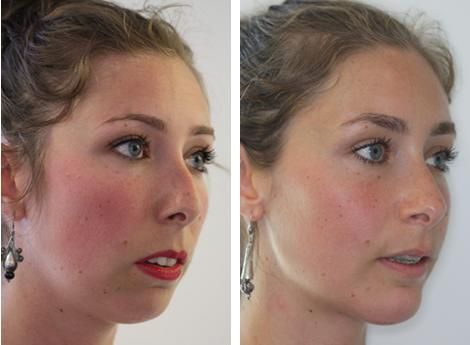
Also known as Mandibular Angle Reduction, V Line Surgery or Jawline Surgery, Jaw Shaping Surgery is performed with the purpose of narrowing the lower part of the face, with particular emphasis on the mandible (lower jaw) and the muscular attachments.
A wide jaw angle can be caused by enlarged muscle, bone, or a combination of the two. A prominent jaw angle or square jaw is considered a masculine trait, particularly in Asian countries. Therefore, many people opt for surgical correction to get their desired look. The surgery can shorten an overly long jaw and change a square-shaped face to an oval shape. Some people with temporomandibular joint (TMJ) disorders, uneven jaws, or jaws that causes pain when chewing might also undergo this surgery to correct pain.
There are several critical elements involved in the surgery, including the angles of the jaw, the body of the mandible, and the shape of the chin. While the procedure is typically performed on women with a square jawline who want a more feminine look, it can be done on both men and women. However, this procedure may not work for people who want to feminize a male’s face since males usually have a taller and longer face. Therefore, a V Line Surgery would only make a face look more elongated.
What does a Jaw Shaping Procedure Involve?
Various developmental, congenital, or some rare disorders such as acromegaly can cause enlarged mandibles, which can be corrected by Jawline Surgery. It is ideal for those with overly square or U-shaped jawline, overly manly jaw shape, bloated cheeks, and double chin. If you are considering V line surgery, you will need to be in a good state of physical and mental health.
Prior to the surgery, you will be examined by X-rays and 3D CT scans. Your surgeon will analyze and evaluate the overall structure of your jaw to create a plan to produce the desired result. You will also need to undergo medical tests such as ECGs to ensure that you don’t have a condition that may put you in danger or compromise the success of the surgery.
Surgery is performed under general anesthetic through tracheal intubation and leaves minimal scarring. You will need to fast for 8 hours before the surgery. Oscillating saws are used to reshape the jaw. The surgery can be performed inside the mouth (intraoral) or from outside the mouth (postauricular). The intraoral approach is the most widely used method. With this approach, an incision is made between the gum and the back of the cheek next to the jaw. Then, the jawline is carved out into their desired shape. A portion of the masseter muscle is shaved off, and the outer portion of the bone is chipped off. This approach is best for patients who aim to narrow their frontal view since the change is subtle and natural.
If the patient wants to change the appearance of the jaw angle from a side view, the overall contour of the bone will need to be changed. This means that the patient needs a full-thickness bone removal. Although it can be done through the intraoral approach, the surgeon’s view during this approach is very limited, which can decrease the precision of the procedure. Therefore, the best approach is from outside of the mouth or postauricular. To get direct access to the bone, the surgeon makes an incision hidden around the ear. This approach can remove a more substantial amount of bone. The recovery time using this approach is also much shorter than the intraoral approach since the swelling stays confined to the neck area.
How Long Should I Stay in Tunisia for a Jaw Shaping Procedure?
The typical length of time for Jaw Shaping is usually around 2 hours. Nevertheless, you have to stay in the hospital for around one to two days for initial recovery where you will be monitored to make sure everything is fine. After being discharged, plan to stay in the Tunisia for 10 to 14 days or until the surgeon says you can go home. The stitches are generally removed within two weeks after surgery, though this may vary from patient to patient.
What's the Recovery Time for Jaw Shaping Procedures in Tunisia?
Immediately after the surgery, you will need to wear a facial mask that presses tightly against the skin around the jaw to keep the post-surgery swelling down. Also, you will not be allowed to eat foods that require chewing because it will delay the recovery and can cause bleeding. If you undergo the intraoral approach, your food intake will be limited for a considerable length of time. You may feel some swelling, numbness, and discomfort around the incision for several days, but the surgeon will prescribe medications to help with the pain.
The recovery period can be different for each individual; some people may be able to go back to their regular routines after seven to ten days, but others may need more time to fully recover. Avoid doing any vigorous activity that increases your blood pressure for several weeks, such as jogging and other exercises. Most of the visible signs, such as swelling and bruising, should disappear within a few weeks. Symptoms such as hematoma and infection are common, and will usually subside within three to six months post-surgery.
What sort of Aftercare is Required for Jaw Shaping Procedures in Tunisia?
You must follow your surgeon aftercare instructions strictly to accelerate your recovery and minimalize possible complications. The instruction will likely include the following recommendations:
- Food intake. You may need to consume a liquid diet for a week after surgery as drinking your food is less painful and prevents trauma to the jaw area. You should be able to consume hard foods within one month.
- Oral hygiene. An antibacterial mouth rinse will keep your mouth and incision area clean, which will decrease the possibility of infection.
- Avoid tobacco and alcohol. Smoking and drinking alcohol should be avoided for a while.
- Keep the head elevated. You should keep your head elevated even when you are sleeping as it is the key to reduce swelling.
- Compression bandage. You are recommended to wear a compression bandage at all times for the first three days and while sleeping for the first week or two.
- Avoid strenuous activity. Do not do any heavy lifting or exercise for at least a month. However, do walk around and practice some gentle movement.
- Attend follow up appointments. The surgeon will check your progress to avoid any complications.
What's the Success Rate of Jaw Shaping Procedures in Tunisia?
Jaw shaping surgery is a safe procedure when performed by a trained surgeon. Around 94% of patients express their satisfaction with this procedure. However, it is important to have realistic expectations. You should also be aware of the possible risks that this surgery may cause. These risks include infection, asymmetry, seroma, deep vein thrombosis, pulmonary embolism, and hematoma. Partial numbness of the jaw can also happen due to nerve damage.
Are there Alternatives to Jaw Shaping Procedures in Tunisia?
If you wish to reshape your jaw but do not want to undergo surgery, there are non-invasive options available. The most popular alternatives are Botox and Dysport, which can effectively contour the jaw by relaxing the appearance of a square jaw. This procedure shrinks the masseter muscle by weakening it. These injectable can also be used to correct facial asymmetry around the jawline area. Since they are non-invasive, you can return to your daily activates right away and they offer a subtler shift in your appearance. However, these techniques are limited to cases in which the masseter is enlarged and may not work as well as V Line Surgery.
Whilst the information presented here has been accurately sourced and verified by a medical professional for its accuracy, it is still advised to consult with your doctor before pursuing a medical treatment at one of the listed medical providers
No Time?
Tell us what you're looking for and we'll reachout to the top clinics all at once
Enquire Now

Popular Procedures in Tunisia
Prices Start From $70

Prices Start From $28

Prices Start From $1,945

Prices Start From $275

Recommended Medical Centers in Tunisia for Jaw Shaping

- Interpreter services
- Translation service
- Religious facilities
- Medical records transfer
- Medical travel insurance
- Health insurance coordination
- TV in the room
- Safe in the room
- Phone in the room
- Private rooms for patients available

- Interpreter services
- Translation service
- Religious facilities
- Medical records transfer
- Medical travel insurance
- Health insurance coordination
- TV in the room
- Safe in the room
- Phone in the room
- Private rooms for patients available

- Interpreter services
- Translation service
- Religious facilities
- Medical records transfer
- Medical travel insurance
- Health insurance coordination
- TV in the room
- Safe in the room
- Phone in the room
- Private rooms for patients available

- Interpreter services
- Translation service
- Religious facilities
- Medical records transfer
- Medical travel insurance
- Health insurance coordination
- TV in the room
- Safe in the room
- Phone in the room
- Private rooms for patients available

- Interpreter services
- Translation service
- Religious facilities
- Medical records transfer
- Medical travel insurance
- Health insurance coordination
- TV in the room
- Safe in the room
- Phone in the room
- Private rooms for patients available

- Interpreter services
- Translation service
- Religious facilities
- Medical records transfer
- Medical travel insurance
- Health insurance coordination
- TV in the room
- Safe in the room
- Phone in the room
- Private rooms for patients available

- Interpreter services
- Translation service
- Religious facilities
- Medical records transfer
- Medical travel insurance
- Health insurance coordination
- TV in the room
- Safe in the room
- Phone in the room
- Private rooms for patients available

- Interpreter services
- Translation service
- Religious facilities
- Medical records transfer
- Medical travel insurance
- Health insurance coordination
- TV in the room
- Safe in the room
- Phone in the room
- Private rooms for patients available

- Interpreter services
- Translation service
- Religious facilities
- Medical records transfer
- Medical travel insurance
- Health insurance coordination
- TV in the room
- Safe in the room
- Phone in the room
- Private rooms for patients available

- Interpreter services
- Translation service
- Religious facilities
- Medical records transfer
- Medical travel insurance
- Health insurance coordination
- TV in the room
- Safe in the room
- Phone in the room
- Private rooms for patients available
Jaw Shaping in and around Tunisia
About Tunisia
Tunisia is one of the few countries which can cater to everyone and it manages to combine climate, golden beaches, history, and shopping for an “all-around” experience. It has a high standard of healthcare and an excellent reputation for cosmetic surgery. Cosmetic and plastic surgeons are regulated by the Tunisian Ministry of Health and the private clinics have state-of-the-art equipment and English-speaking staff. Tunisia welcomes an ever-increasing number of medical tourists each year, many of whom travel for Jaw Shaping procedures. Medical Tourists travel from all across the globe, particularly from Europe and neighboring African countries with an inferior healthcare system. Popular medical tourism destinations outside of the capital, Tunis, include Sousse and Mahdia
Popular Parts of Tunisia
- Tunis, the country’s capital, is overflowing with a history that dates from the 4th Century BC. The city is divided into two parts, the old city known as the medina and the new city (or Ville nouvelle in French). Many tourists visit Tunis to see the Archaeological Site of Carthage which is also a UNESCO World Heritage Site. The beautiful Islamic architecture in medina also attracts many tourists to the city.
- Tozeur is known as a home to an enchanting desert oasis, which was a place to rest and refuel for caravans crossing the Sahara. Another main attraction in the city is the medina, where tourists can find lines of beautiful brick-patterned traditional dessert houses. Chott el Djerid, Sahara’s largest salt pan, is a popular day-trip destination.
- Sousse is located on the coast of the Mediterranean Sea. It offers good beaches with a clear blue sea. The city has been fought over by the Romans, Arabs, and Europeans, giving it a colorful history and culture. Sousse Archeological Museum is one of the most visited sites in the country; it has the second largest collection of mosaics in the world.
- Hammamet is the country’s original tourism resort. The city has beautiful gardens filled with oranges, lemons, and other citrus plants. It also has wonderful sandy beaches with crystal clear water. Just like any other city in Tunisia, this city is also brimming with interesting histories. Sites such as The Gafsa Museum and Bardo Museum will give insights about the Islamic faith and culture.
- Douz, also known as “the gateway to the Sahara.” Tourists who want to experience the Sahara Desert come to this city. Take a camel trip or a 4-wheel-drive into the Sahara or see the Museum of the Sahara that has an interesting collection portraying traditional Saharan life.
Weather and Climate in Tunisia
The North of Tunisia has a subtropical Mediterranean climate with mild rainy winters and hot summers. The South and inland areas have a tropical desert climate.
The weather is relatively comfortable throughout the year. Summer starts in June and lasts until August. The average temperature is between 28 °C to 32 °C with July and August being the hottest months. The heat is not as bad on the coast because of the seaside breeze. Be aware that July to September is the jellyfish season.
The heat decreases in autumn and the weather is somewhat more comfortable. There are occasional rain showers in September. The temperature in October can be like summer during day time, but cold at night. October has more rain than September. The season lasts for three months from September to November with an average temperature of around 19 °C to 29 °C.
The weather in winter can be uncertain. The average temperature is between 16 °C and 18 °C, but it can drop to 7 °C at night and below 0 °C in highlands and deserts and a clear sky is rare during this season.
Spring comes in March and the temperature can rise to 20 °C. Mornings and nights are cold; there is still a high probability of rains and thunderstorms at the end of this season.
Getting Around in Tunisia
Tunisia has several international airports. The main airport is Tunic-Carthage International Airport. It has international connections with major European countries and the Middle East. The airport is the hub for Tunisair, Tunisair Express, and Nouvelair. Other airports that have international flights are Enfidha-Hammamet, Monastir Habib Bourguiba, Djerba-Zarzis, and Tabarka-Aïn Draham.
Taxis and buses are available to get to the city center from Tunis Airport. The SNT bus line departs every 30 minutes from the airport, the ticket costs less than 1 TND. There is also the TUT bus which departs every 15 minutes and is more luxurious and expensive.
Airport taxis are available at the airport taxi stand and are usually metered. Always make sure that the driver turns the meter on before riding the taxis. A journey to the city should cost around 5 TND. An extra cost will be added if you have baggage.
Getting around in Tunisia can be done by several transportation modes. Tunisair Express provides domestic flights between Tunis, Tozeur, Djerba, and Gabes. The Train is also available and the national train company in the country is SNCFT that runs modern and comfortable trains from Tunis to Sousse, Sfax, and Monastir. There are three classes of service that tourists can choose. The fare from Tunis to Sousse is between 6 to 10 TND. The long-distance bus is an economical option to travel between big cities such as Tunis, Hammamet, and Nabeul. The buses usually depart every 30 minutes.
Tourist Visas in Tunisia
Citizens of 97 countries (including Australia, China Singapore, the United States, and Russia) can visit and stay in Tunisia for up to 90 days without a visa. Other nationalities are advised to check with their local Tunisia embassy. Tunisia provides an online visa application for nationalities that needs a visa to enter. The eVisa will simplify the process of obtaining travel authorization to enter the country.
Additional Information
-
Local Currency: the local currency is the Tunisian dinar (TND). 1 USD converts to 2.61 TND.
-
Money & Payments: ATMs can be found in most cities and in all tourist areas. Many ATMs have withdrawal limits of 400 TND. Credit cards (MasterCard and Visa) are accepted in major cities and tourist areas. They can be used for shops, car hire, or top-end accommodation. Always make sure to carry cash if you want to travel outside major cities. Tipping is not necessary but will be appreciated.
-
Local Language: Arabic is the official language of Tunisia. French is very common due to the country’s former status as a French protectorate. English is still very limited except in the tourist areas and expensive hotels.
-
Local Culture and Religion: Islam is the major religion with 98% of the population identified as Muslim. There is a small group of Christian and Jews. Since most of the population is Muslim, always remember that the dress code is important in Tunisia.
-
Public Holidays: Tunisia celebrates major Islam holidays. The country hosts several annual festivals throughout the year such as The International Festival of the Sahara, Yasmine Hammamet Festival, and the International Festival of Carthage.
Popular Searches
- Plastic Surgery in Thailand
- Dental Implants in Thailand
- Hair Transplant in Thailand
- Breast Augmentation Thailand
- Gastric Sleeve in Thailand
- Gender Reassignment Surgery in Thailand
- Laser Hair Removal in Bangkok
- Botox in Bangkok
- Dermatology in Bangkok
- Breast Augmentation in Bangkok
- Coolsculpting in Bangkok
- Veneers in Turkey
- Hair Transplant in Turkey
- Rhinoplasty in Turkey
- Stem Cell Therapy in Mexico
- Rhinoplasty in Mexico
- Liposuction in Mexico
- Coolsculpting in Tijuana
- Rhinoplasty in Korea
- Scar Removal in Korea
- Gastric Sleeve in Turkey
- Bone Marrow Transplant in India
- Invisalign in Malaysia
- Plastic Surgery in the Dominican Republic
- Tummy Tuck in the Dominican Republic
- Plastic and Cosmetic Surgery in Poland
- Rhinoplasty in Poland
- Hair Implant in Poland
- Dental Implants in Poland
- IVF in Turkey
